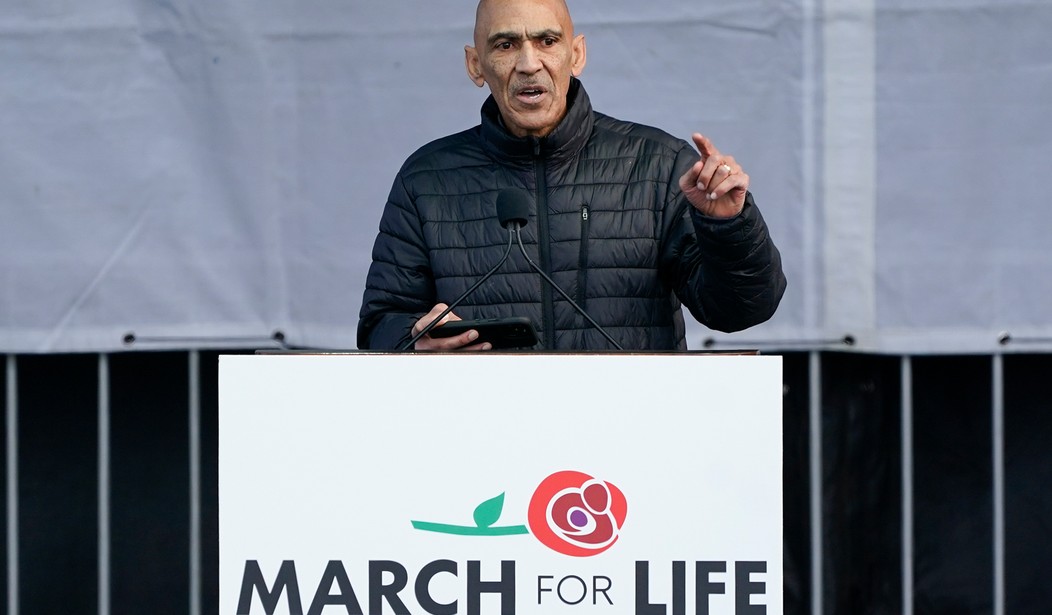It has been a year since the Supreme Court overturned Roe v. Wade. Now, states can enact their own laws regarding abortion without the federal government having a say in the matter. Folks on both sides of the debate have discussed how the conversation will look moving forward.
Red and blue states have passed legislation further restricting or supporting abortion, and using Congress to do either is not out of the question depending on who controls the legislature after 2024. The pro-life movement scored a major victory last year, but the battle continues, and if it wants to keep the momentum, it will need to do more to change minds.
Some Democrats have suggested that while they did not favor the overturning of Roe, it might give them an advantage politically. Indeed, the red wave that was highly anticipated in the leadup to last year’s midterms transformed into a crimson trickle. Many speculated that the abortion issue played a major role in this development.
In an interview Sunday on MSNBC’s “Inside with Jen Psaki,” Rep. Nancy Pelosi, a Democrat from California, encouraged her party to prioritize the abortion issue in their 2024 campaigns, claiming that Republicans would face significant losses across the country due to their stance on abortion. The lawmaker emphasized that abortion remains a winning issue for Democrats and played a role in preventing disaster for the party in the 2022 midterm elections:
Referencing the 2022 midterms, Pelosi said:
Everybody said we’re going to lose 30, 40 seats. Last time we lost five and everybody says you had the wrong message. They were saying to me, you’re going to owe an apology to the members because Dobbs is in the rearview mirror. But it wasn’t. It was up front, and it is right up in front of women in our country.
Former President Barack Obama posted a tweet lamenting the overturning of Roe, referring to state bans on the procedure:
It’s been a year since the Supreme Court overturned Roe v. Wade. Since then, 14 states have banned most abortions, leaving millions of women and girls with nowhere to turn for the care they need.
And yet, there are reasons to hope.
After Roe v. Wade was overturned, voters in…
— Barack Obama (@BarackObama) June 24, 2023
It’s been a year since the Supreme Court overturned Roe v. Wade. Since then, 14 states have banned most abortions, leaving millions of women and girls with nowhere to turn for the care they need.
And yet, there are reasons to hope.
After Roe v. Wade was overturned, voters in Michigan, California, and Vermont helped enshrine abortion rights in their state constitutions. And governors in states like Nevada, Hawaii, and Pennsylvania have signed executive orders to protect abortion access.
On the pro-life side, high-profile Republicans celebrated the Supreme Court decision and reaffirmed their commitment to protecting innocent life. Former President Donald Trump declared himself the “most pro-life president” in U.S. history during an event commemorating the one-year anniversary of the Supreme Court’s ruling that overturned Roe v. Wade.
He praised his administration’s actions to protect the unborn, such as reinstating the Mexico City policy, which restricts federal funding for organizations abroad that perform abortions. Trump slammed pro-abortion activists for advocating “unlimited abortion on demand” and accused them of supporting the execution of babies after birth. He emphasized the sanctity of life and the need to protect all children, whether born or unborn.
As the 2024 presidential election approaches, the abortion issue is expected to play a significant role in shaping voter decisions. Pro-life activists are calling for bold and uncompromising leadership on the issue, urging candidates to clearly articulate their stance.
They argue that candidates willing to advocate for the protection of unborn life and challenge pro-abortion candidates will resonate with pro-life voters. Some notable figures, like Florida Gov. Ron DeSantis, have been praised for their pro-life leadership and passing abortion restrictions. Pro-life activists acknowledge the need for increased education and marketing efforts to counter the well-funded pro-abortion movement and promote a winning pro-life message.
In the words of “The Mandalorian,” This is the way.
With the overturning of Roe v. Wade, the pro-life movement is at a critical juncture. While legislative efforts will undoubtedly continue at the state level, it is now more important than ever for pro-life advocates to shift their focus toward changing hearts and minds through cultural engagement and persuasion. Instead of relying solely on legal battles, the movement should prioritize educating and influencing individuals to embrace alternatives to abortion and to recognize the value of every human life.
To achieve this, the pro-life movement must engage in comprehensive efforts to address the underlying causes of abortion and provide practical solutions for women facing unexpected pregnancies. This includes promoting the availability of support services, such as pregnancy resource centers, adoption agencies, and comprehensive healthcare options. Now is the time for folks to mobilize at the grassroots level to create and implement solutions – preferably with as little government involvement as possible.
By highlighting these alternatives and emphasizing the potential for positive outcomes, pro-life advocates can challenge the notion that abortion is the only solution to unplanned pregnancies. The pro-abortion left has done an effective job of convincing many mothers – especially black mothers – that killing their babies is the only viable option. Pro-lifers need to develop messaging strategies to destroy that narrative.
Furthermore, fostering a culture that values life at all stages, from conception to natural death, requires ongoing efforts to raise awareness, counter misinformation, and promote compassionate dialogue on the complexities surrounding the issue of abortion. Through respectful engagement and the sharing of personal stories from folks with experience with abortion, the pro-life movement can effectively convey the message that there are better alternatives to terminating one’s pregnancy, empowering individuals to make choices that affirm the dignity and worth of both mothers and unborn children.













